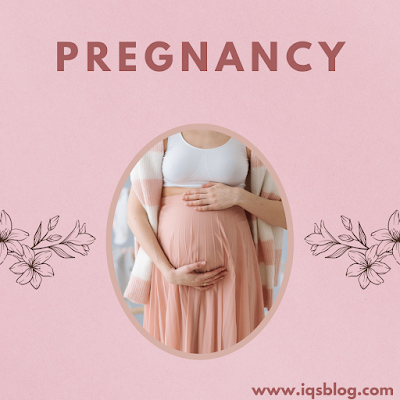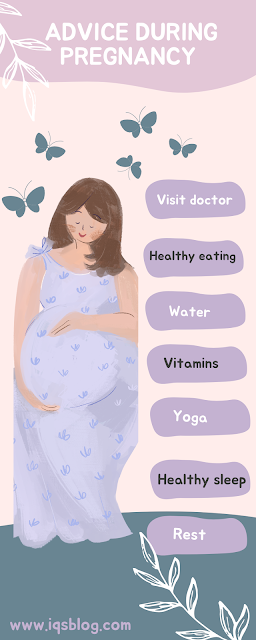Pregnancy is a transformative experience in a woman's life that involves the development and growth of a new human being inside her body. It is a complex process that involves numerous changes to the woman's body and lifestyle, as well as significant physical, emotional, and psychological demands. In this article, we will explore the various stages of pregnancy, the changes that occur in the mother and fetus, and important factors to consider for a healthy pregnancy.
Stages of Pregnancy
Pregnancy is generally divided into three trimesters, each lasting approximately 12-14 weeks.
During the first trimester, the fertilized egg implants in the uterus and begins to develop into an embryo. This stage is critical for the formation of the major organs and systems, and the embryo is particularly susceptible to environmental factors such as drugs and alcohol.
During the second trimester, the embryo develops into a fetus and begins to grow rapidly. The fetus's organs become more complex, and it begins to move and respond to external stimuli. The mother's body also undergoes significant changes, including weight gain, hormonal fluctuations, and increased blood volume.
In the third trimester, the fetus continues to grow and mature, with a particular focus on the development of the lungs and brain. The mother may experience physical discomfort, including back pain, fatigue, and difficulty sleeping, as the fetus puts pressure on her internal organs and pelvic region.
Changes in the Mother's Body
Pregnancy causes numerous changes in a woman's body, many of which are necessary to support the growth and development of the fetus. These changes include:
Weight Gain: It is normal for women to gain weight during pregnancy. The amount of weight gain depends on various factors, including the woman's pre-pregnancy weight, age, and overall health.
Hormonal Changes: Pregnancy hormones, including progesterone and estrogen, play a critical role in supporting the growth of the fetus. However, they can also cause a range of symptoms, including nausea, fatigue, and mood swings.
Increased Blood Volume: As the fetus grows, the mother's body produces more blood to provide oxygen and nutrients to the developing fetus. This can cause the heart to work harder, leading to an increase in heart rate.
Changes in the Breasts: The breasts may become larger and more sensitive during pregnancy as they prepare for lactation.
Stretch Marks: Many women develop stretch marks on their abdomen, breasts, and hips as their skin stretches to accommodate the growing fetus.
Changes in the Fetus
During pregnancy, the fetus undergoes numerous changes and developments, including:
Formation of Organs and Systems: During the first trimester, the major organs and systems of the body begin to form, including the heart, brain, lungs, and digestive system.
Growth and Development: The fetus grows rapidly throughout pregnancy, with a particular focus on the development of the lungs and brain during the third trimester.
Movement: As the fetus develops, it becomes more active and begins to move and respond to external stimuli.
Response to Stimuli: The fetus can hear and respond to external sounds, such as the mother's voice, during the second trimester.
Factors for a Healthy Pregnancy
Maintaining a healthy pregnancy involves numerous factors, including:
Good Prenatal Care: Regular prenatal care, including visits with a healthcare provider, can help identify and manage any health issues that may arise during pregnancy.
Healthy Diet: Eating a balanced and nutritious diet is critical for both the mother and the fetus. This includes consuming adequate amounts of protein, vitamins, and minerals.
Exercise: Regular physical activity can help improve overall health and reduce the risk of complications during pregnancy.
Avoiding Harmful Substances: Smoking, alcohol, and drug use during pregnancy can cause serious health problems for the mother and fetus, including premature birth, low birth weight, and developmental issues. It is essential to avoid these substances to ensure a healthy pregnancy.
Managing Stress: Pregnancy can be a stressful time, and stress can have negative effects on both the mother and fetus. Incorporating stress-reducing methods such as engaging in yoga, meditation, or deep breathing exercises can assist in lowering stress levels.
Getting Enough Sleep: Getting enough sleep is crucial during pregnancy. Sleep helps the body repair and restore itself, and it is essential for both the mother's and fetus's health.
- Taking Prenatal Vitamins: Prenatal vitamins are specially formulated to provide the nutrients that are critical for fetal development, including folic acid, iron, and calcium.
Pregnancy is a remarkable experience that involves significant changes to the mother's body and the development of a new human being. It is a time of physical, emotional, and psychological demands, but with proper care, women can ensure a healthy pregnancy and give their baby the best start in life. By taking care of themselves and their growing fetus, women can enjoy a happy and healthy pregnancy, leading to a healthy baby and a fulfilling family life.
Pregnancy Symptoms
Pregnancy is a wonderful journey for women, and it comes with its own set of early and later signs and symptoms. These signs and symptoms vary from woman to woman, and some women may experience very few or no symptoms at all. In this article, we will discuss the early and later signs and symptoms of pregnancy in detail.
Early Signs and Symptoms of Pregnancy
Missed Period: A missed period is often the first and most obvious sign of pregnancy. If you have missed your period and are sexually active, it is recommended that you take a pregnancy test to confirm.
Nausea and Vomiting: Nausea and vomiting, commonly referred to as morning sickness, can occur at any time of the day. This symptom usually starts in the first trimester, around 6 weeks of pregnancy, and can last until the end of the first trimester.
Fatigue: Many women experience extreme tiredness and fatigue in the first few weeks of pregnancy. This is due to the increased production of the hormone progesterone.
Breast Changes: Women may experience changes in their breasts, such as tenderness, swelling, or tingling. The nipples may also become more sensitive and darker in color.
Spotting and Cramping: Some women may experience light spotting and cramping, similar to what they experience during their menstrual cycle, in the early weeks of pregnancy. This is usually nothing to be concerned about, but it is always recommended to check with your healthcare provider.
Later Signs and Symptoms of Pregnancy
Fetal Movement: Women usually start feeling the movements of their baby around 20 weeks of pregnancy. This can be a great source of joy for expecting mothers.
Increased Appetite and Weight Gain: As the baby grows and develops, pregnant women may experience increased hunger and weight gain. This is normal and expected during pregnancy.
Back Pain: As the baby grows and puts pressure on the back, many women experience back pain, especially in the later stages of pregnancy.
Swelling: Pregnant women may experience swelling in their feet, ankles, and hands due to increased blood volume and pressure on blood vessels.
Shortness of Breath: In the later stages of pregnancy, the growing uterus puts pressure on the diaphragm, making it harder to breathe. This is a normal symptom of pregnancy.
Braxton Hicks Contractions: These are practice contractions that occur in the later stages of pregnancy. They are usually painless and feel like a tightening of the abdomen.
Fatigue: Pregnant women may experience fatigue throughout their pregnancy due to the body's increased energy demands to support the growing baby.
Increased Urination: As the baby grows, it puts pressure on the bladder, leading to increased urination.
Skin Changes: Hormonal changes during pregnancy can cause changes in the skin, including acne, darkening of the skin, and stretch marks.
Mood Swings: Hormonal changes during pregnancy can cause mood swings, including irritability, anxiety, and depression.
Food Cravings and Aversions: Many women experience cravings for certain foods during pregnancy, while others develop aversions to foods they previously enjoyed.
Constipation: Hormonal changes during pregnancy can slow down the digestive system, leading to constipation for many women.
Headaches: Headaches are a common pregnancy symptom and can be caused by hormonal changes, increased blood volume, and changes in blood sugar levels.
Dizziness and Fainting: Changes in blood pressure and blood sugar levels during pregnancy can lead to dizziness and fainting for some women.
In conclusion, pregnancy is a wonderful journey full of ups and downs. The early and later signs and symptoms of pregnancy can vary from woman to woman. However, if you experience any unusual symptoms during pregnancy, it is always recommended to consult with your healthcare provider to ensure a healthy pregnancy.





.png)

0 Comments